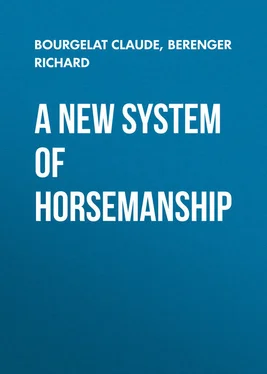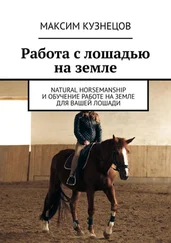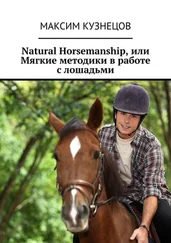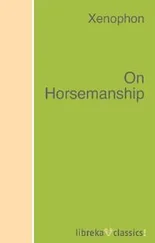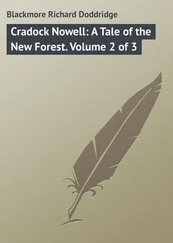Richard Berenger - A New System of Horsemanship
Здесь есть возможность читать онлайн «Richard Berenger - A New System of Horsemanship» — ознакомительный отрывок электронной книги совершенно бесплатно, а после прочтения отрывка купить полную версию. В некоторых случаях можно слушать аудио, скачать через торрент в формате fb2 и присутствует краткое содержание. Жанр: foreign_antique, foreign_prose, на английском языке. Описание произведения, (предисловие) а так же отзывы посетителей доступны на портале библиотеки ЛибКат.
- Название:A New System of Horsemanship
- Автор:
- Жанр:
- Год:неизвестен
- ISBN:нет данных
- Рейтинг книги:4 / 5. Голосов: 1
-
Избранное:Добавить в избранное
- Отзывы:
-
Ваша оценка:
- 80
- 1
- 2
- 3
- 4
- 5
A New System of Horsemanship: краткое содержание, описание и аннотация
Предлагаем к чтению аннотацию, описание, краткое содержание или предисловие (зависит от того, что написал сам автор книги «A New System of Horsemanship»). Если вы не нашли необходимую информацию о книге — напишите в комментариях, мы постараемся отыскать её.
A New System of Horsemanship — читать онлайн ознакомительный отрывок
Ниже представлен текст книги, разбитый по страницам. Система сохранения места последней прочитанной страницы, позволяет с удобством читать онлайн бесплатно книгу «A New System of Horsemanship», без необходимости каждый раз заново искать на чём Вы остановились. Поставьте закладку, и сможете в любой момент перейти на страницу, на которой закончили чтение.
Интервал:
Закладка:
Claude Bourgelat
A New System of Horsemanship
Content, if hence th' Unlearn'd their Wants may view, The Learn'd reflect on what before they knew.
Pope's Essay on Crit.THE TRANSLATOR's PREFACE
It is not my Design, in the Task I undertake of giving some Account of this Work, as well as of the Art which is the Subject of it, to trace its Origin back into past Times, or to wander in search of it in the Darkness and Confusion of remote Antiquity. Let it suffice to say, that though its Beginning, as well as that of other Arts, was imperfect, yet its Use, and the Entertainment it affords, have been known and tasted in all Ages. But however distinguish'd it may be by the Notice of the Great, who have at all Times deign'd to profess and practise it; it is yet less entitled to our Regard for these Distinctions, than for the real Advantages we derive from it. Riding consists of two Parts, the useful and the ornamental. That the latter of these may be dispensed with, is most readily granted; but that it behoves every one who puts himself upon a Horse to have some Knowledge of the first, is most evident. – For who would trust to the Mercy of an Animal that may prove wild and ungovernable, who knows himself to be incapable of controuling him, and of acting for his own Safety? Who would venture alone into a Vessel, that can neither row, nor manage a Sail, but must trust entirely to the Winds and Tide? Yet is this the Case with the Generality of Mankind, who are carried upon the Back of a Horse, and think they ride. The Utility of this Art consists then in knowing how to guide and direct your Horse as you please, and in reducing him to Obedience, so as to make him execute readily what you require of him. Thus far it is to be wish'd every Person who is conversant with Horses, would endeavour to attain. The ornamental Part, I have already said, is not so requisite to be known: It can only be called an Accomplishment, and placed among the superfluous but refin'd Pleasures of Life. In what Esteem and Honour however it has constantly been held, abundantly appears from the Schools and Academies every where erected for teaching its Elements, as well as from the Number of Books, ancient and modern, given to the World by eminent and accomplished Persons who have studied and practis'd it. Among these our illustrious Countryman , William Cavendish, Duke of Newcastle, has the highest Claim to our Praise and Acknowledgments. It would be needless to describe his Excellencies; his Character, as a Horseman, is universally known, and universally admir'd. The Truth and Soundness of his Principles, and the Extensiveness of his Knowledge, have opened to us an easier, a shorter, and more certain Way to Perfection in the Art, than was known before. His Precepts have accordingly been adopted by all succeeding Professors, and his Writings consider'd as the Oracle of Horsemanship, notwithstanding a Want of Method and Exactness, which has been objected to them. To remedy these Imperfections, is the Design of the present Undertaking, and the Labours of a judicious and experienced Foreigner, must consummate in the Knowledge of the Art he professes. He has presented us with a new System of Horsemanship, extracted from the Rules of that great Master. The Method and Conciseness with which he has digested the Whole, have made the Copy much less than the Original, but it is a small well-polished Gem. To speak truth, he has made the Subject so much his own by the Refinement of his Remarks, the Justness of his Reasoning, and the Light he has diffused through it, that it must have the Merit of an Original; at least the Reader will be divided to whom he shall render most Thanks, whether to him who has given the Food, or to him who has prepar'd and set it before us with so much Elegance and Order. This at least is our Author's Praise. – The Translator has endeavoured to do him as much Justice, in the following Sheets, as he has done his great Original; sensible of the Danger of so difficult an Enterprize, but prompted to it in hopes of making his Merit more known. He translated the Work, that the Treasures it contains may be gathered by those who are so unfortunate as to want this Assistance to obtain them. He has been as faithful to his Author, as the Languages will allow, judging that to be the surest way of doing him Justice. In some Places however he has used (as all Translators must) a discretionary Power. Every Art has technical terms, or Words of its own; these he has preserved in the Translation, the English affording none adequate to them. He has given no Notes or Comments, imagining the Original can, and hoping the Translation will, want none. Of this however his Readers will be the best Judges; he will say no more of himself, but that he has endeavoured to make the Work as perfect as he could; and for this Reason will be very ready to own any Faults that may be pointed out; for, though desirous of Approbation, he is not vain enough to think, there may not be room for Censure.
CHAP. I.
Of the Horseman's Seat
The Principles and Rules which have hitherto been given for the Horseman's Seat, are various, and even opposite, according as they have been adopted by different Masters, and taught in different Countries; almost each Master, in particular, and every Nation, having certain Rules and Notions of their own. Let us see, however, if Art can discover nothing to us that is certain and invariably true.
The Italians , the Spaniards , the French , and, in a word, every Country, where Riding is in repute, adopt each a Posture which is peculiar to themselves; the Foundation of their general Notions, is, if I may so say, the same, but yet each Country has prescribed Rules for the Placing of the Man in the Saddle.
This Contrariety of Opinions, which have their Origin more in Prejudice, than in Truth and Reality, has given rise to many vain Reasonings and Speculations, each System having its Followers; and, as if Truth was not always the same and unchangeable, but at liberty to assume various, and even opposite Appearances; sometimes one Opinion prevailed, sometimes another dazzled; insomuch, that those who understand nothing of the Subject, but yet are desirous of informing themselves, by searching it to the Bottom, have hitherto been lost in Doubt and Perplexity.
There is nevertheless a sure and infallible Method, by the Assistance of which it would be very easy to overturn all these Systems: But not to enter into a needless Detail, of the extravagant Notions which the Seat alone has given rise to, let us trace it from Principles by so much the more solid, as their Authority will be supported by the most convincing and self-evident Reasons.
In order to succeed in an Art where the Mechanism of the Body is absolutely necessary, and where each Part of the Body has proper Functions, which are peculiar to it, it is most certain, that all and every Part of the Body should be in a natural Posture; were they in an imperfect Situation, they would want that Ease and Freedom which is inseparable from Grace; and as every Motion which is constrained, being false in itself, is incapable of Justness; it is clear that the Part so constrained and forced would throw the whole into Disorder, because each Part belonging to, and depending upon the whole Body, and the Body partaking of the Constraint of its Parts, can never feel that fix'd Point, that just Counterpoise and Equilibre in which alone a fine and just Execution consists.
It is not therefore sufficient in giving Directions for the Seat, to keep altogether to trivial and common Rules which may be followed or left at pleasure; we ought to weigh and examine them with Skill and Judgment, in order to know how to apply them properly and suitably as the Shape and Figure of the Person to whom we undertake to give a Seat will allow; for many Motions and Attitudes that appear easy and natural in one Man, in another are awkward and ungraceful; whence all those Faults and Difficulties which in many Persons have been thought insuperable; whereas a little more Knowledge, a closer Attention, and a more serious Examination into the Principles of the Art, would convert in the same Subject an awkward and displeasing Appearance, into an easy, natural, and graceful Figure, capable of drawing the Eyes even of Judges themselves.
Читать дальшеИнтервал:
Закладка:
Похожие книги на «A New System of Horsemanship»
Представляем Вашему вниманию похожие книги на «A New System of Horsemanship» списком для выбора. Мы отобрали схожую по названию и смыслу литературу в надежде предоставить читателям больше вариантов отыскать новые, интересные, ещё непрочитанные произведения.
Обсуждение, отзывы о книге «A New System of Horsemanship» и просто собственные мнения читателей. Оставьте ваши комментарии, напишите, что Вы думаете о произведении, его смысле или главных героях. Укажите что конкретно понравилось, а что нет, и почему Вы так считаете.
